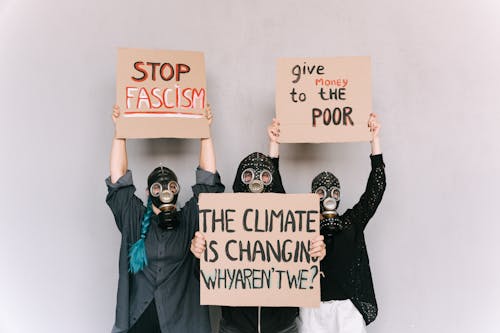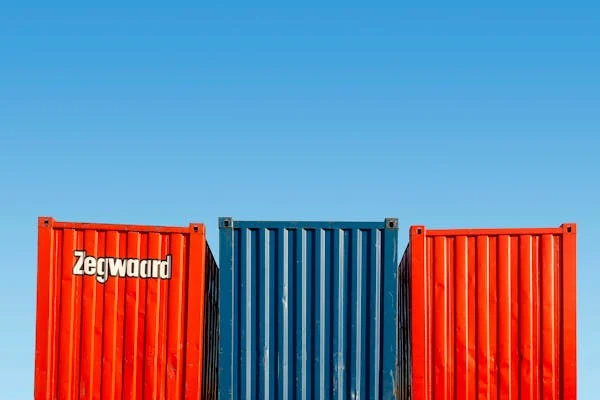Wealth inequality, the uneven distribution of assets among individuals or groups in a society, has become an increasingly significant issue in recent years. The gap between the wealthy and the poor is widening globally, and its consequences are profound, affecting everything from social mobility to political stability. Understanding the causes of wealth inequality, its effects on society, and potential policy solutions is crucial in addressing this pressing issue.
Causes of Wealth Inequality
- Income Disparities One of the primary drivers of wealth inequality is the disparity in income. The richest individuals earn significantly more than the average worker, particularly in developed economies where high-paying jobs are often concentrated in certain sectors, such as finance, technology, and healthcare. At the same time, wage growth for middle- and low-income workers has stagnated, while the incomes of the wealthy continue to rise. This growing income gap contributes to the accumulation of wealth in the hands of a few, further entrenching inequality.
- Capital vs. Labor Income Wealth inequality is exacerbated by the fact that wealth is often derived not just from income earned through work (labor), but from investments, property ownership, and other assets (capital). The rich are more likely to have significant holdings in stocks, real estate, and businesses, which generate returns over time, while those in lower-income brackets have fewer opportunities to accumulate such assets. As a result, individuals with wealth can passively accumulate more wealth through their assets, creating an ongoing cycle of financial growth that is inaccessible to many.
- Inheritance and Intergenerational Wealth Inheritance plays a significant role in wealth inequality, with the wealthiest families often passing down substantial assets to future generations. This generational wealth accumulation helps perpetuate the divide, as wealth is concentrated in the hands of a few families or individuals who can maintain their affluence across generations. Meanwhile, families without assets to pass on are unable to give their children a financial head start, limiting social mobility.
- Educational Disparities Education is a key factor in determining wealth accumulation. Higher education levels typically correlate with higher-paying jobs and greater economic opportunities. However, access to quality education is often tied to wealth, with wealthier families able to afford better schooling and extracurricular opportunities for their children. This perpetuates a cycle where the wealthy have better access to education and therefore more opportunities to increase their wealth, while the poor remain trapped in lower-income jobs with fewer prospects for advancement.
- Globalization and Technological Change Globalization has created a world where businesses can operate across borders, outsourcing labor to countries with cheaper costs and creating a race to the bottom in wages in some sectors. At the same time, technological advancements have led to automation, which often replaces lower-skilled jobs, disproportionately affecting workers in low-income communities. Meanwhile, those in tech-driven industries or with access to capital and innovation benefit from the rapid growth of the digital economy, contributing to the widening wealth gap.

Consequences of Wealth Inequality
- Reduced Social Mobility Wealth inequality leads to reduced social mobility, making it more difficult for individuals born into poverty to improve their economic status. Without access to quality education, capital, or networks, it can be nearly impossible for people from disadvantaged backgrounds to break the cycle of poverty. This stifles the potential of individuals and limits the overall economic growth of a society.
- Political Polarization and Instability When wealth becomes concentrated in the hands of a few, it can lead to political instability. The wealthy often have the power to influence policy through lobbying and donations, which can result in policies that further entrench their economic position while neglecting the needs of the broader population. This creates a system where the rich get richer, and the poor are left behind, leading to feelings of disenfranchisement and disillusionment with the political process. This divide can contribute to political polarization, protests, and unrest.
- Health and Well-Being Disparities Wealth inequality is closely linked to disparities in health outcomes. Wealthier individuals have greater access to healthcare, better nutrition, and a higher quality of life, which contributes to longer lifespans and better physical and mental health. In contrast, those with lower incomes often face barriers to healthcare, higher rates of chronic diseases, and lower life expectancy. This inequality in health further deepens the divide between the rich and the poor, affecting the overall well-being of society.
- Economic Inefficiency High levels of wealth inequality can lead to economic inefficiencies. When wealth is concentrated in the hands of a small percentage of the population, much of the capital is not being put to productive use. The wealthy often invest in speculative ventures or store wealth in assets like luxury goods, which do little to stimulate economic growth. Conversely, lower-income households are likely to spend a larger portion of their income on necessities, which can stimulate demand for goods and services and promote economic activity. Therefore, reducing wealth inequality could lead to more efficient use of resources and a more dynamic economy.

Policy Solutions to Address Wealth Inequality
- Progressive Taxation One of the most commonly proposed solutions to wealth inequality is implementing progressive tax systems, where the wealthy pay a higher percentage of their income or assets in taxes. This would help redistribute wealth and fund public services like education, healthcare, and infrastructure, which would benefit society as a whole. Some advocate for higher taxes on capital gains (income from investments) to ensure that those who earn wealth through investments contribute more to the public good.
- Universal Basic Income (UBI) Universal Basic Income (UBI) has gained attention as a potential solution to wealth inequality. Under a UBI system, every citizen would receive a guaranteed income from the government, regardless of employment status or wealth. Proponents argue that this would help reduce poverty and provide financial security for individuals in a rapidly changing economy. Critics, however, question its feasibility and potential economic impacts, particularly on inflation and labor force participation.
- Wealth Redistribution Programs Wealth redistribution programs, such as direct cash transfers, social safety nets, or subsidies for education and healthcare, aim to reduce the gap between the rich and poor. These programs can provide financial assistance to lower-income families, improving access to opportunities and basic necessities. They can also be designed to address the specific needs of underserved communities, ensuring that resources are allocated where they are most needed.
- Improving Access to Education Investing in education is one of the most effective long-term solutions to wealth inequality. Expanding access to quality education, from early childhood through higher education, can help break the cycle of poverty and create more opportunities for upward mobility. Additionally, vocational training and skills development programs can help workers transition into high-demand fields, ensuring that all individuals have the skills necessary to thrive in a modern economy.
- Corporate Social Responsibility and Ethical Business Practices Encouraging businesses to adopt more ethical and socially responsible practices can also play a role in addressing wealth inequality. This includes paying fair wages, providing benefits to workers, and ensuring that business practices do not exploit workers or contribute to environmental degradation. Corporate social responsibility initiatives can also include investing in local communities and creating opportunities for economic advancement.
Conclusion
Wealth inequality is a complex issue with far-reaching consequences for individuals, society, and the economy. The gap between the rich and the poor has grown wider over the past few decades, and its effects are felt across various aspects of life, from access to education and healthcare to political participation and social mobility. Addressing wealth inequality will require a multi-faceted approach, including progressive taxation, wealth redistribution programs, and investments in education and social safety nets. While the path to reducing wealth inequality may be challenging, it is essential for creating a more equitable and prosperous future for all members of society.













